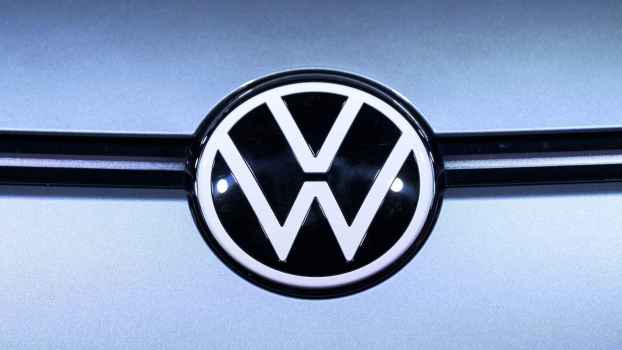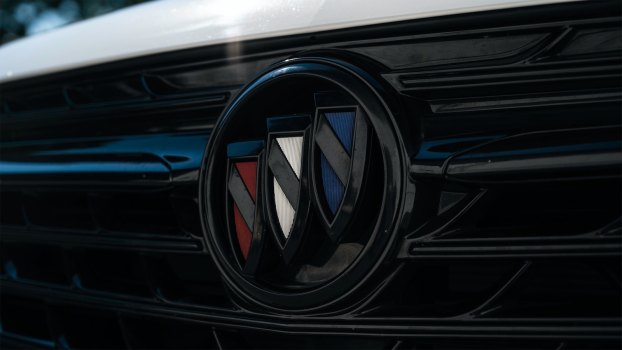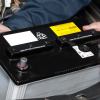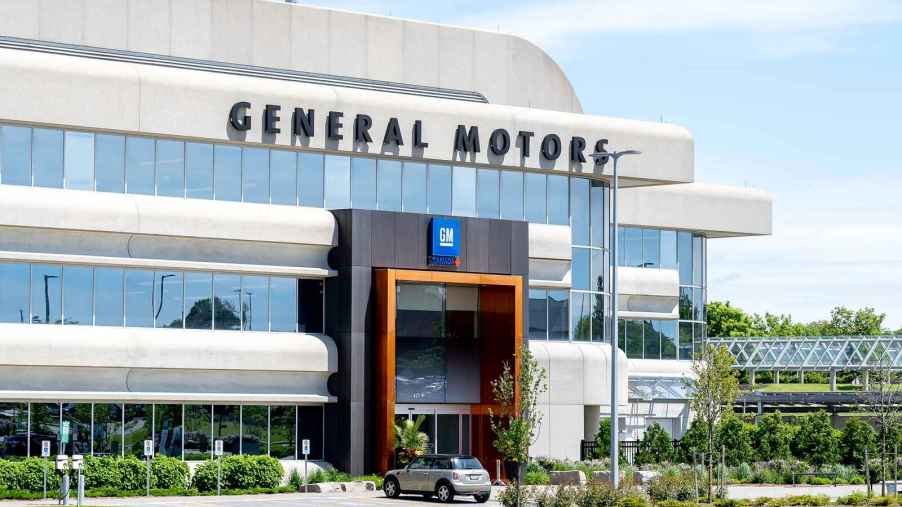
Does General Motors or Volkswagen Own More Car Companies?
General Motors and Volkswagen are automotive behemoths. Each company owns a variety of brands, ranging from affordable nameplates to luxury automakers and everything in between. No matter the vehicle you’re after, GM or VW has a model to suit. So, which corporation owns more car companies? Let’s take a closer look at this worldwide competition.
Present General Motors car brands
GM owns the Chevrolet, Buick, GMC, and Cadillac brands. Each nameplate serves a different market, giving consumers vehicles that suit their needs and budgets.
Chevrolet is an everyman car company, making vehicles that range from basic SUVs to world-class sports cars. The Trax compact SUV offers low-cost utility, while the Corvette Z06 sports car competes with the best in the world. The company has top-selling pickups and SUVs, like the Silverado 1500 and Tahoe.
Buick focuses on luxury SUVs with sleek looks and unique personalities. A recent rebranding gave the company an energy boost, putting it more on par with the competition. SUV buyers looking for something different with a modern flair can take a look at the Envision, Encore, or Enclave.
GMC focuses on professional-grade pickups and SUVs, adding upgrades here and there compared to similar Chevrolets. The Sierra pickup leads the way with strong capability and a powerful stance. The Yukon Denali sets the standard for luxury and convenience among full-size SUVs.
Cadillac continues its tradition of American luxury cars with style and performance. Today, the brand’s cars compete with European competitors like never before. From the CT4 sports sedan to the Escalade SUV, the company knows how to make upscale vehicles.
Since 2000, GM has participated in the SAIC-GM-Wuling Automobile partnership that produces vehicles in China with Wuling and Baojun branding.
Beyond that, the American automaker also created BrightDrop in 2021, offering electric solutions for commercial applications. The company’s first products included the Trace electric pallet and the Zevo 600 electric van.
In the past, GM held an interest in famed sports car maker Lotus, though that’s no longer the case. The same holds true for the Opel and Vauxhall brands.
Retired GM car brands
Over the years, GM has owned 41 different car companies, according to GM Authority. During that time, a number were retired. Here’s a list.
- Acadian (1962-1971): Sold lightly modified Chevy IIs and Chevelles in Canada.
- Alpheon (2010-2015): Sold a rebranded Buick LaCrosse in Korea.
- Asuna (1992-1994): The Canadian version of the economy brand, Geo.
- Beaumont (1966-1969): Initially a model name for Acadian, it later became its own brand, producing a Canadian version of the Chevelle.
- Bedford (1931-1991): The commercial division of GM’s Vauxhall brand.
- Cartercar (1905-1915): Purchased by GM for its friction-drive transmission.
- Daewoo (1937-2005): South Korean maker of economy cars.
- Elmore (1893-1916): Bought up during GM’s early days. Production ended in 1912.
- Envoy (1959-1970): Re-badged Vauxhalls sold by Canadian Chevrolet-Oldsmobile dealerships.
- Epic (1964-1970): Like Envoy, they were re-badged Vauxhalls sold in Canada by Chevrolet-Oldsmobile dealers.
- Ewing (1908-1911): A taxi builder based in Geneva, Ohio.
- Geo (1989-1997): Re-badged Isuzus, Toyotas, and Suzukis.
- Holden (1856-2020): Australian automaker that was originally a saddlery.
- Hummer (1992-2010): Originally, military-derived SUVs made by AM General, later bought by GM. Models included the H1, H2, and H3.
- LaSalle (1927-1940): Similar to Cadillac, with more affordable pricing.
- Marquette (1909-1912)(1929-1931): Initially made Rainier cars, then a companion brand to Buick.
- McLaughlin (1907-1942): Canadian automaker that merged with Chevrolet Canada.
- Oakland (1907-1931): Companion make to Pontiac, it was positioned higher in the brand hierarchy than Chevrolet.
- Oldsmobile (1897-2004): The longest-running GM brand, founded by Random E. Olds.
- Passport (1988-1991): Canadian brand that sold European-made and Asian-made vehicles.
- Pontiac (1926-2010): Maker of storied models like the GTO and LeMans.
- Rainier (1905-1911): Manufacturer of strong, large vehicles.
- Rapid (1902-1912): Commercial vehicle manufacturer. Later joined with GM.
- Ranger (1968-1978): Cars manufactured in South Africa, Switzerland, and Belgium. The vehicles were locally made versions of the Opel Rekord.
- Reliance (1904-1912): Almost the same as Rapid, other than a specific timeline.
- Saab (1945-2012): Swedish manufacturer of unique, memorable vehicles.
- Saturn (1985-2010): Rooted in affordability, it sought to compete with Asian brands.
- Scripps-Booth (1913-1922): A luxury brand that became a division of GM.
- Sheridan (1920-1921): GM’s first-ever brand, created by founder William Durant.
- Viking (1929-1930): Companion brand to Oldsmobile, though positioned higher in the lineup.
- Welch (1901-1911): Originally named Chelsea, it was known for innovation.
- Yellow Cab (1920-1943): Founded by John Hertz to make vehicles for the Yellow Cab company.
- Yellow Coach (1923-1943): The bus-making arm of Yellow Cab.
Notable non-car GM brands
General Motors also owns several non-car companies, with each featuring innovative automotive tech.
ACDelco makes OEM parts for General Motors vehicles.
OnStar offers subscription-based navigation, communications, and remote diagnostics.
Ultium is GM’s electric vehicle platform, underpinning its latest EV offerings.
Vehicle Intelligence Platform provides technology for future vehicles, like the newest Super Cruise driver’s assistance, infotainment, and connectivity.
Cruise LLC is a self-driving car company that refines autonomous driving technology.
Volkswagen Group car brands
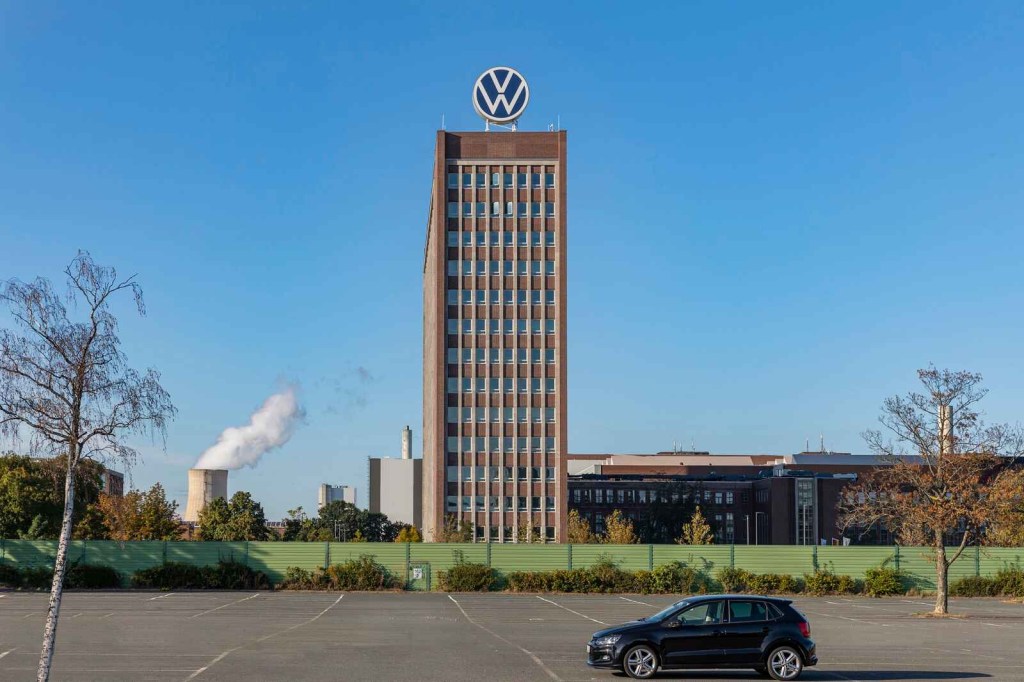
General Motors has quite the automotive portfolio. But the Volkswagen Group also owns a bevy of brands, though it has an edge when it comes to high-end luxury and performance. Here’s the list.
Volkswagen is an iconic German automaker, with classic models like the Beetle, Golf, and Scirocco.
Audi — known for its Quattro AWD system — makes sophisticated luxury vehicles with a performance twist. VW took ownership in the 1960s.
Bentley has a heritage of British luxury and elegance. Volkswagen purchased the company in 1998.
Italian brand Bugatti has a history of unique vehicles, with interesting powerplants and bold style. VW acquired the brand in 1998.
Ducati, also based in Italy, sets the standard for exotic performance motorcycles. Audi-owned Lamborghini purchased Ducati in 2012.
Volkswagen recently debuted the Jetta sub-brand in China, selling nearly 30,000 vehicles in three months. The brand seeks younger buyers looking for their first VW.
Lamborghini is on par with fellow Italian brand Ferrari when it comes to superlative sports cars. The Volkswagen Group purchased the company in 1998.
But wait! There’s more…
MAN Truck & Bus makes commercial vehicles for the toughest jobs. VW purchased a controlling interest in 2012.
Porsche is a storied German sports car manufacturer with numerous race wins and technological innovations. It now also makes SUVs. In 2012, Volkswagen took over Porsche. Motor Trend has more on this interesting topic.
SCANIA is a Swedish truck and bus manufacturer in addition to heavy-duty diesel engines. VW purchased the company in 2008.
SEAT is a Spanish automaker that sells Seat and Cupra-branded vehicles. Volkswagen acquired the company in 1986.
Skoda is a company based in the Czech Republic, and sells vehicles in more than 100 countries. VW bought the brand in 2000.
Volkswagen Commercial is the company’s light commercial division.
That’s a lot to process. But if you want even more details, Car and Bike has them.
General Motors and Volkswagen own quite a few car companies. But in the final tally, VW is ahead by a wide margin. While GM focuses on its domestic brands, VW owns companies spread across the globe. And though the American company specializes in attainable vehicles, the German marque owns more upscale manufacturers.
